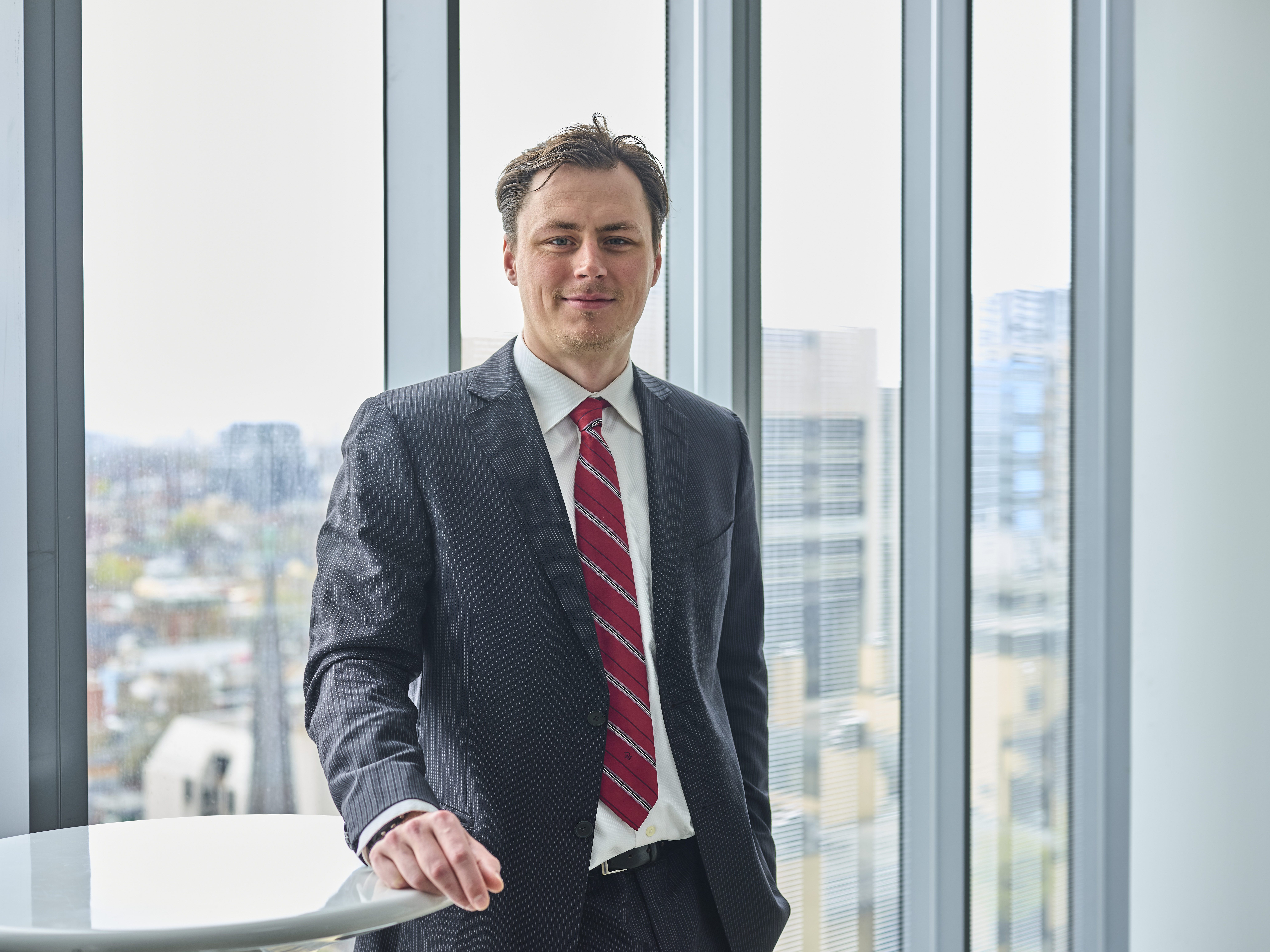RUDI SECKEL
Lawyer I Specialist lawyer for administrative law I Diploma in public administration

The legal outcome must be written on the forehead of the facts!
My career began with a 3-year dual course of study in Thuringia, where I was able to gain practical experience in various authorities. I then completed my legal training in Jena and Dresden and worked at law firms specializing in public law alongside my law studies and legal clerkship. At the end of 2019, I started practicing as an employed lawyer at a reputable law firm in Dresden and until the beginning of February 2024, I mainly advised clients in public law. Since March 2024, I have been part of the team of the German-Canadian Chamber of Industry and Commerce and support German companies entering the Canadian market.
With this diverse experience, I am now available to assist you in answering your legal questions and supporting you in your concerns. My goal is to provide you with effective solutions and represent your interests to the best of my ability.
I advise both public and private clients on matters such as German urban planning and building regulations law, monument protection law, environmental law, water law, grant law, BAföG law, and other public law topics.
Public Building Law
Public building law is a field of law that deals with the rules and regulations governing the construction of buildings and other structures. It encompasses laws, regulations, and guidelines set by governmental bodies that regulate the process of construction.
In public building law, the focus is on ensuring that construction projects align with the interests of the public. This means that construction projects must adhere to certain regulations and standards to ensure they are safe, environmentally friendly, and urbanistically sound.
Typical topics in public building law include the planning of construction projects, building permits, building regulations, monument protection, environmental protection, and land use. It also regulates the relationship between developers, construction companies, and government authorities throughout the construction process.
In essence, public building law serves to ensure that construction projects are in the public interest and consider the needs of the community while respecting the rights of developers.
Subsidy Law
Subsidy law refers to the legal provisions and regulations governing the allocation and use of financial support or subsidies by government authorities. These subsidies may include grants, loans, tax incentives, or other financial assistance provided by governments, agencies, international organizations, or foundations.
Typical topics in subsidy law include procurement procedures, eligibility criteria for subsidies, financing regulations, monitoring and control of fund utilization, as well as legal consequences for violations of subsidy guidelines.
Overall, subsidy law aims to ensure that subsidies are effectively and transparently allocated to achieve specific objectives, whether it be promoting innovation, economic development, environmental protection, or other societal goals.
BAföG Law
The BAföG law pertains to the Federal Training Assistance Act (Bundesausbildungsförderungsgesetz or BAföG), a law in Germany that provides financial assistance to students and trainees to finance their education. BAföG is granted to students in need to enable them to pursue their education even if they do not have sufficient financial resources. The support may consist of grants and low-interest loans and is determined by various factors such as the income of the student’s parents or spouse. The goal of BAföG is to promote equal opportunities in the education system regardless of the financial situation of the students.
Publications
In 2023 and 2024, I have been a regular contributor to the Construction Law section of NJW-Spezial, where I authored case reviews and articles on various aspects of construction law, with a particular focus on public construction law. Below is a list of my published articles:
„Intermediate Storage of Construction Waste – A Guide,“ NJW-Spezial 2024, 44
„Cannabis Law – Is There a Need for Urban Planning Regulation?“ NJW-Spezial 2023, 620
„Tectural Approval – Must One Build What Was Approved?“ NJW-Spezial 2023, 44
„Consequences of the Emergency Energy Measures Package for Construction Law,“ NJW-Spezial 2022, 684
„Discovery of Unexploded Ordnance During Construction Work: Who Bears the Removal Costs?“ NJW-Spezial 2022, 428
„Liability of Monument Conservation Authorities for Construction Cost Increases,“ NJW-Spezial 2022, 44
„Open Spaces and Urban Development Context,“ NJW-Spezial 2021, 108
„Questions of Monument Protection Law in the Building Permit Procedure,“ NJW-Spezial 2020, 428

Contact
- hello@rechtsanwalt-seckel.de
- + 49 (0) 15679 029550
- If I am not available by phone, please kindly send me an email. I will get back to you promptly.
I M P R E S S U M
Responsible for this site is Rudi Seckel. I am exempt from the obligation to establish a law office.
Phone: +49 (0)156 79209550
Contact via email is possible at hello@rechtsanwalt-seckel.de.
I am a member of the Bar Association of Saxony, Glacisstraße 6, 01099 Dresden. The contact details of the Bar Association of Saxony are as follows:
Phone: +49 (0)351 31859-0, Fax: +49 (0)351 33608-99, Website: www.rak-sachsen.de.
The Bar Association of Saxony is also the supervisory authority for lawyers. I have been awarded the professional title „Rechtsanwalt“ (lawyer) in the Federal Republic of Germany.
The relevant professional regulations include, among others, the Federal Lawyers‘ Act (BRAO), the Professional Code for Lawyers (BORA), the Specialist Lawyers‘ Regulations (FAO), the Lawyers‘ Remuneration Act (RVG), the Act on the Activities of European Lawyers in Germany (EuRAG), and the Professional Rules of the Lawyers of the European Union (CCBE Professional Rules). They can be found on the website of the Federal Bar Association www.brak.de under the section „For Lawyers“ and the keyword „Professional Law.“
Professional indemnity insurance is provided by Markel Insurance SE, Sophienstr. 26, 80333 Munich. The geographical scope of insurance coverage is limited to the Federal Republic of Germany.
Online dispute resolution platform and consumer dispute resolution: The European Commission provides a platform for online dispute resolution, which you can find at http://ec.europa.eu/consumers/odr/. I do not participate in dispute resolution proceedings before a consumer arbitration board.